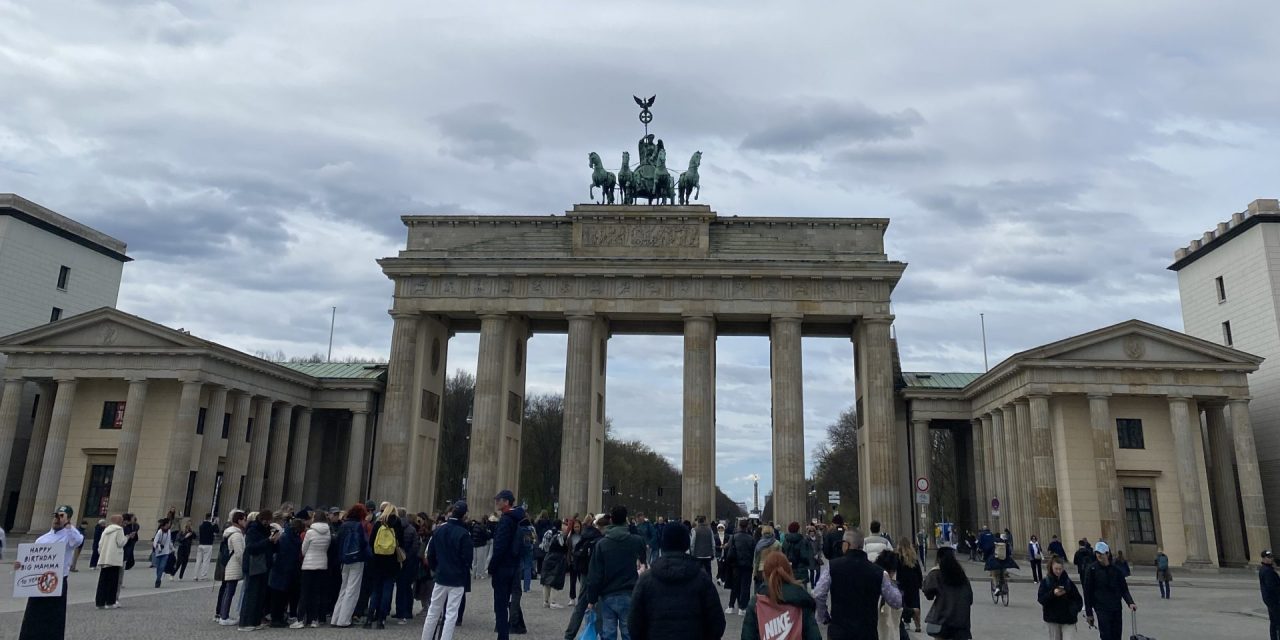Germany, once praised internationally for its welcoming Willkommenskultur, now faces a pivotal moment as right-wing extremism gains ground. This cultural shift, largely propelled by the growing influence of the Alternative für Deutschland (AfD), particularly affects refugees seeking shelter in the country.
In 2023, Germany saw 329,120 asylum applications, a 51.1% rise from the previous year, primarily from Syria, Turkey, and Afghanistan (Statista, 2025). This growth has reawakened intense debates about immigration policies, integration, and national identity.
Media’s role: amplifying fears or offering Solutions?
Wiebke Pittlik, editor-in-chief at Duitslandweb, points out that German media significantly influences public perceptions of refugees. “There’s a lot of attention for the migration and refugee debate, sort of an over-focus,” Pittlik explains. Especially during elections, media coverage emphasizes violent incidents involving refugees, often ignoring possible solutions like trauma support or psychological assistance, which Pittlik suggests “is much more logical to do than just say, okay, stop them at the borders.”
Pittlik highlights a clear divide within the media landscape. Mainstream outlets usually offer nuanced coverage, whereas tabloids like the influential Bild and online extremist platforms sensationalize refugee issues. This polarized coverage amplifies public anxiety, contributing significantly to the AfD’s narrative.
AfD’s appeal: exploiting social frustrations
The AfD has achieved significant electoral success, particularly in eastern Germany, capitalizing on historical, social, and economic frustrations. In recent elections, the AfD saw its voter base increase dramatically from 10.5% to 21%. (DW, 2025) Chris Melzer, communications officer for UNHCR Germany, explains, “You can ask why the AfD had doubled its amount of voters within just three years… I think skepticism about refugees is definitely a reason.” Melzer says people are skeptical of Angela Merkel’s past approach.
These results election results underscore the increasing public appeal of the AfD’s anti-immigration stance. Pittlik emphasizes the unique historical context of eastern Germany, highlighting that “until 1990 it was a dictatorship there. So they have another sense of democracy.” She also notes that many eastern Germans “feel left behind and ignored by Berlin,” prompting them to seek solace in the AfD’s nationalist rhetoric.
This election also revealed notable generational divides. Pittlik notes, “young boys were particularly attracted to the AfD, partly due to its powerful social media presence and simplified messaging.” Approximately 30% of young men voted for the AfD, highlighting a worrying trend toward right-wing extremism among younger people. On the other side, significant protests against the AfD’s rise occurred mainly among older generations, driven by historical awareness and a determination to mantain democratic values.
The human cost of extremism
The rise of extremism has concrete, often violent consequences for refugees. Melzer describes harmful myths perpetuated by right-wing media: “The typical thing is normally these so-called refugees are not refugees at all. They’re just coming for the social benefits in Germany.” Such myths worsen hostility toward refugees.
Pittlik explicitly states the dangers refugees face: “If you live in Eastern Germany, there are places refugees shouldn’t go at night.” She adds, “Neo-Nazis and right-wing extremists are encouraged by the success of the AfD. So the stronger the AfD becomes, the stronger also these groups become.”
The challenge of integration
Integration remains a significant challenge, compounded by language barriers, unrecognized qualifications, and bureaucratic complexity. Melzer acknowledges these difficulties, stating, “Many cities are struggling with integrating the refugees.” Germany spent €29.7 billion on jobless benefits in 2024, underscoring extensive efforts required for refugee integration.
Public opinion and political shifts
The rise in AfD popularity reflects broader societal shifts. Germans are dissatisfied with the government’s migration management, pushing political parties toward stricter asylum policies. The government has introduced accelerated asylum processing, reduced welfare benefits, and intensified border controls, significantly influenced by these electoral pressures.
The future: extremism and migration policies
The growing political strength of the AfD raises serious concerns about Germany’s future immigration policies. Melzer points out, “We are very concerned… If someone asks for protection, you have to check, you have to give this person the right to show their case.” Yet, the rise of extremist politics threatens these humanitarian standards.
Pittlik warns explicitly about potential future scenarios: “The AfD promises to keep everyone out and remove people that are not ‘German enough’ from Germany… making it very uncomfortable for them in Germany. And I think that is what they would do if they get the chance.”
Solidarity
Despite challenges, great solidarity persists. Melzer emphasizes ongoing grassroots support, stating, “There are millions of Germans who are supporting refugees every single day, like going to job interviews with them, going to the school with them… or even opening the door for them and giving them a roof.”
Pittlik agrees, recognizing the commitment many Germans still maintain toward refugee integration.




